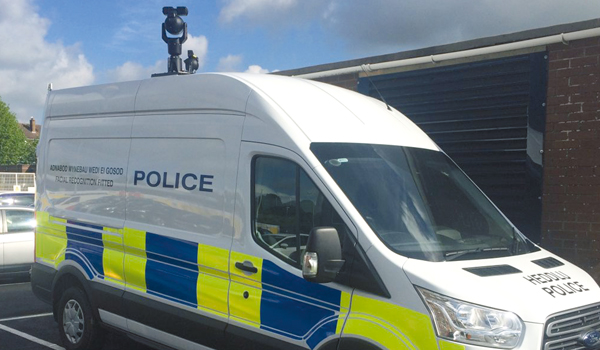South Wales Police to resume trial deployments of live facial recognition technology
South Wales Police is to resume trials of live facial recognition technology almost 18 months after the Court of Appeal ruled its use breached privacy rights and broke equalities law.
The force said the judgment in 2020 highlighted a “small number of policy areas” which needed to be explored and resolved.
As part of its response to the judgment, it said a number of trial deployments will take place in Cardiff city centre to test the system to ensure there is “no risk of breaching equality requirements through bias or discrimination”.
South Wales Police said it was committed to ensuring the use of the technology meets its responsibilities to the public and is “proportionate and lawful”.
It added that there has never been an unlawful arrest as a result of using the technology in South Wales.
The trial deployments will be held on Saturday (March 19) in Cardiff city centre.
Assistant Chief Constable Mark Travis said: “The legal challenge to our use of this ground-breaking technology through the courts has enabled us to ensure that its use is responsible, proportionate and fair.
“The whole aim of using facial recognition technology is to keep the public safe and assist us in identifying serious offenders in order to protect our communities from individuals who pose significant risks.
“I believe the public will continue to support our use of all the available methods and technology to keep them safe, providing what we do is legitimate and proportionate.”
The Court of Appeal ruling followed an unsuccessful challenge in the High Court by campaigning group Liberty on behalf of former councillor Ed Bridges, who claimed his human rights were breached when he was filmed by the system while Christmas shopping.
The High Court had concluded that South Wales Police’s use of live facial recognition “met the requirements of the Human Rights Act”.
However, on August 11, 2020, the Court of Appeal overturned the High Court’s decision and held that South Wales Police’s use of the technology was unlawful on three grounds: the insufficiency of its legal regime; the validity of the police force’s data protection impact assessment; and the failure to meet the public sector equality duty.
Acting as a test for other forces in England and Wales, South Wales Police began trialling live facial recognition technology in 2017 in public spaces in the Cardiff area.
It said prior to the Court of Appeal challenge, live-time deployments of facial recognition in the force area resulted in 61 people being arrested for offences including robbery violence, theft, and failure to respond to court warrants. The deployments took place at events ranging from major sporting and public events in Cardiff and Swansea to supporting operations to tackle local criminality.
Mr Travis said: “There was nothing in the Court of Appeal judgment that fundamentally undermined the use of facial recognition to protect the public and I am pleased that the work that has gone on since 2020 will strengthen the operational policies we have in place and win public support through being designed to withstand the most robust legal challenge and public scrutiny.”
South Wales police and crime commissioner Alun Michael said: “I maintain close scrutiny of the operational decisions on the introduction of technology and subject each new step to independent oversight and scrutiny because of the ethical and social concerns that have been expressed over the use of facial recognition technology.
“People want to know that members of the public who have done nothing wrong are not being subjected to inappropriate surveillance and their privacy and anonymity will be respected and protected. However, people also want us to keep them safe and to use the technology to apprehend people who have committed serious offences and take them off the streets.
“As a result of the robust systems of scrutiny and challenge in place I can reassure the public that we are getting that balance right. We are committed to protecting human rights as well as keeping the public safe.”
He added: “Police officers have always been able to spot a person who is wanted for a crime and stop them in the street. The difference with the use of this technology is simply the speed and accuracy with which the individual can be identified and arrested and the speed with which a mistaken identity can be cleared up.”


